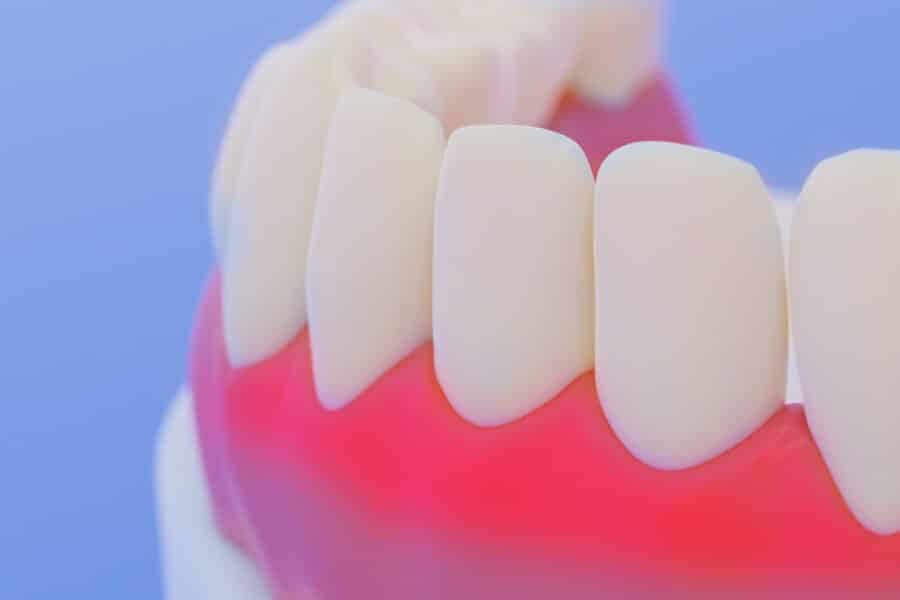Gum disease, also known as periodontal disease, is an infection of the gums, the soft tissues in your mouth that surround your teeth and jawbone. This infection is caused by harmful bacteria that is housed in plaque, which is a soft & sticky film that builds on our teeth every single day.
Whether you have signs of gum problems or have been told that you have gum disease, you might be wondering if there is a cure.
Here are some common questions about gum disease and how to fix it:
Is there a cure for gum disease?
Unfortunately, because gum disease is caused by bacteria that is forming in your mouth daily, there is not a complete cure for the disease, only management with a combination of periodontal therapy and proper oral home care. How easily gum health can be managed depends on your level of disease, risk factors, periodontal maintenance schedule, and your own home care.
Can home therapies help or do I need professional treatment for gum disease?
Although home therapies can help reduce bacteria, if you have been diagnosed with periodontal disease, home care alone cannot treat your disease because the infection has already caused damage to underlying tissues that require professional periodontal therapy.
After therapy, home care is an important part of periodontal health management. Your periodontist and dental hygienist will help you create an effective home care routine that will fit your needs. This routine may include power toothbrushes, various flossing or in-between cleaning tools, special toothpaste, and mouth rinses.
Can gum disease be fixed with antibiotics?
Although certain antibiotics can help to kill harmful oral bacteria, it is not used as a sole means to treat gum disease but as an adjunct to periodontal therapy. Typically, oral antibiotics are used to treat aggressive or non-responsive cases of periodontal disease.
Localized antibiotics can also be used to treat periodontal pockets that have already been treated but show increased inflammation and bleeding due to bacterial activity in the area. These antibiotics can be given during a periodontal maintenance cleaning.
Can periodontal treatment reverse the gum infection?
With proper treatment, you can help offset damage from gum disease and prevent the disease from progressing. If you have been told you have gum disease, it is easier to stabilize the infection if it is caught early.
Patients who have gingivitis, the earliest stage of the disease, can reverse it with proper home care and professional dental cleanings because the infection has not yet caused damage to tissue and bone. However, even when you have had gingivitis, memory cells remain that increase your risk of recurring disease, which means that you must remain diligent about home care and dental visits.
Patients who have been diagnosed with any level of periodontitis have had damaged tissue/bone because of the infection. While the active infection can be arrested by periodontal therapy, the damage remains.
Often, although advanced periodontal therapies can help to regrow tissue and bone in damaged areas, which helps to restore health, the risk of recurrence is high. That is why Periodontal maintenance is essential for the management of oral health.
To best maintain your gum health, it is best to see your periodontist to discuss your own level of disease, personal risk factors, treatment options, home care routine, and maintenance schedule that will help you stabilize your disease and offer continued periodontal management.
Contact us today!
